Indescribable.
But I’ll try anyway.
In Annie Dillard’s essay “Total Eclipse,” she states that “seeing a partial eclipse bears the same relation to seeing a total eclipse as kissing a man does to marrying him, or as flying in an airplane does to falling out of an airplane.”
After experiencing the total eclipse on Monday, I have to concur. Even the 95% partial eclipse was nothing compared to the full descent of day to night; taking the glasses off and watching the shadow overtake us across the field; the chill in the air, the owls hooting and the crickets chirping, the stillness, the smell; the 360 degree sunrise at the horizon; bare eyes taking in the spectacle of the dark circled moon with the sun’s corona peeking around the edges; the emotion.
It was powerful.
This is how James Fenimore Cooper, in his short story “Eclipse,” described his reaction to the 1806 total eclipse:
Men who witness any extraordinary spectacle together, are apt, in after-times, to find a pleasure in conversing on its impressions. But I do not remember to have ever heard a single being freely communicative on the subject of his individual feelings at the most solemn moment of the eclipse. It would seem as if sensations were aroused too closely connected with the constitution of the spirit to be irreverently and familiarly discussed. I shall only say that I have passed a varied and eventful life, that it has been my fortune to see earth, heavens, ocean, and man in most of their aspects; but never have I beheld any spectacle which so plainly manifested the majesty of the Creator, or so forcibly taught the lesson of humility to man as a total eclipse of the sun.
[Go read the whole story here and be moved.]
Our celebration began the day before when friends from the north (Portland) drove down to stay with us for the event. We enjoyed each other’s company—chatting and eating. After a dinner together in the yard, we were joined by more friends and family for a short birthday celebration for Leif (he had turned 11 on Friday during a week full of other activities) and then our annual viewing of The Princess Bride on our large outdoor movie screen.
Monday morning, we packed up a huge breakfast spread and traveled two miles down the country road to join my parents and sister’s family for the eclipse. We set up our outdoor griddle and made eggs, bacon, and hashbrowns to add to all the other delicious food and ate while basking in the slowly diminishing sun hanging in a perfectly clear blue sky. Our August has brought a week of 100 degree weather, rain, and perpetually smoky skies, but God granted us perfect conditions on Monday.
The leaves’ shadows on walls became crescents.
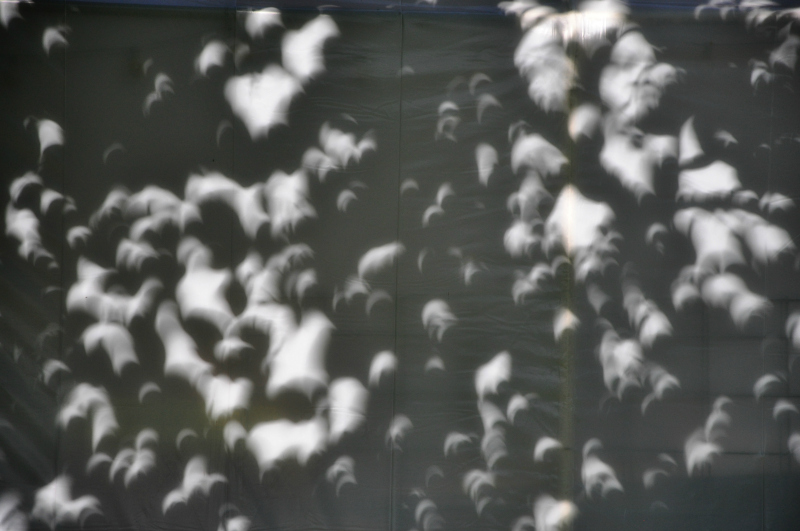
We were surprised by the gradual coolness and the eerie light. It was unlike dusk. Unlike a cloudy day. Annie Dillard described it this way:
The sun was going, and the world was wrong. The grasses were wrong; they were platinum. Their every detail of stem, head, and blade shone lightless and artificially distinct as an art photographer’s platinum print. This color has never been seen on Earth. The hues were metallic; their finish was matte. The hillside was a 19th-century tinted photograph from which the tints had faded. All the people you see in the photograph, distinct and detailed as their faces look, are now dead. The sky was navy blue. My hands were silver. All the distant hills’ grasses were finespun metal which the wind laid down. I was watching a faded color print of a movie filmed in the Middle Ages; I was standing in it, by some mistake. I was standing in a movie of hillside grasses filmed in the Middle Ages. I missed my own century, the people I knew, and the real light of day.
When totality drew nigh, we meandered down the road to the open field, where trees would not obscure our view of the distant horizon, the purple mountains shrouded in a light haze from the wildfires. The field had recently been plowed, and the three little girls were more delighted by the clouds of dust kicked up by their feet than the fading light.
We turned our backs to the eastern sun in the last moments to watch the western horizon darken and the weight of shadow descend across the opposite field. We saw the snake shadows rippling on the ground.
And then darkness. Venus bright in the day-night sky.
A low, pale, rosy glow as we turned in circles to view our first ever 360 degree sunrise.
The ink-blot sun.
Like falling out of an airplane.
We tried to make time stand still. Eek out each of the 111 seconds we were gifted. Impress the moment on our memories.
And then a brilliant diamond burst out from the glowing ring and we quickly donned our glasses to continue watching the filtered alien sky.
After a few more moments of watching the world come back to life—the light, the warmth—we returned along the road home. To play. To talk. To eat. To be.
But enough is enough. One turns at last even from glory itself with a sigh of relief. From the depths of mystery, and even from the heights of splendor, we bounce back and hurry for the latitudes of home. [Annie Dillard]
Grateful for this once-in-a-lifetime moment of splendor.

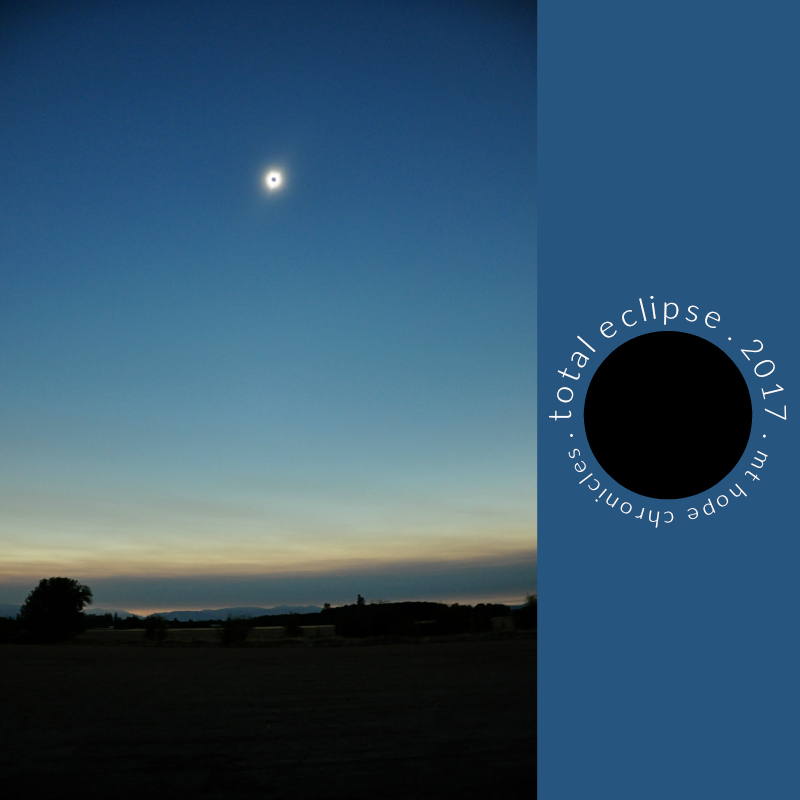
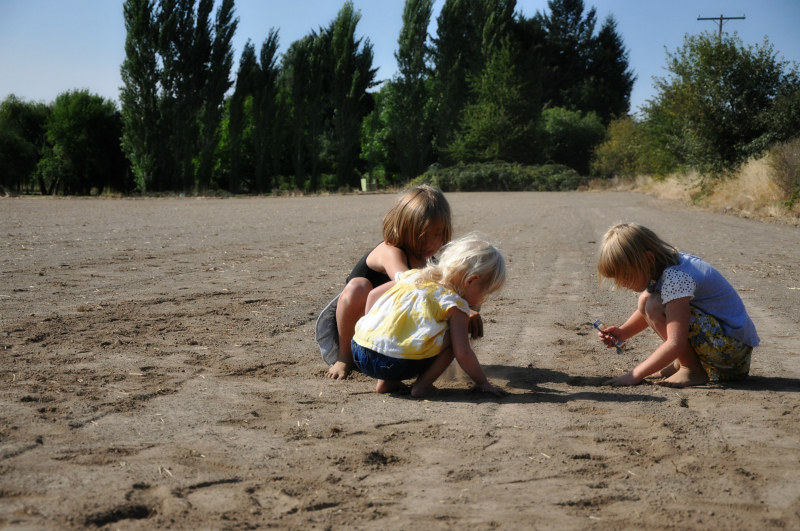
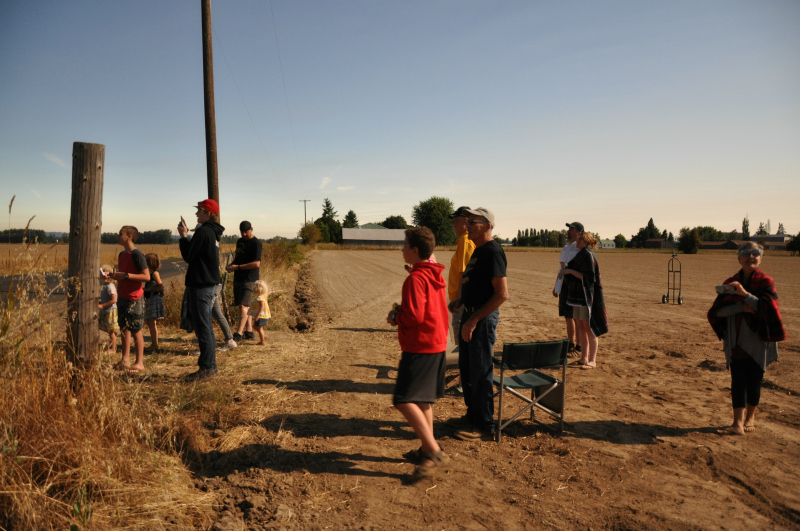
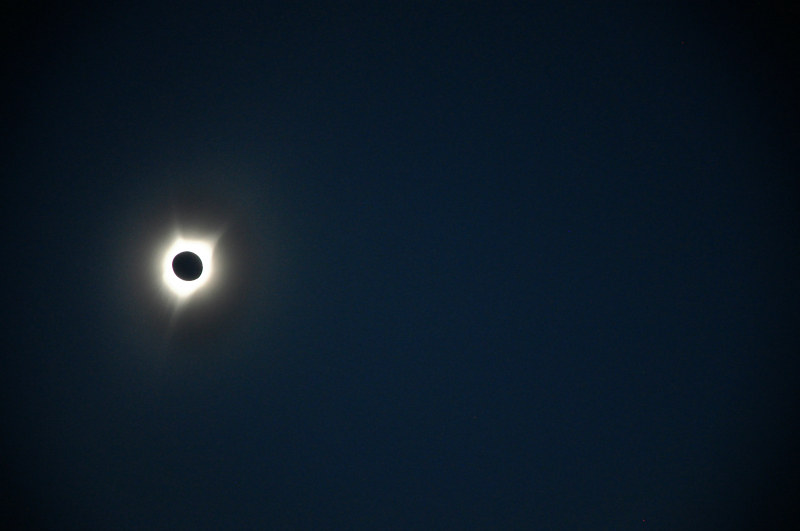
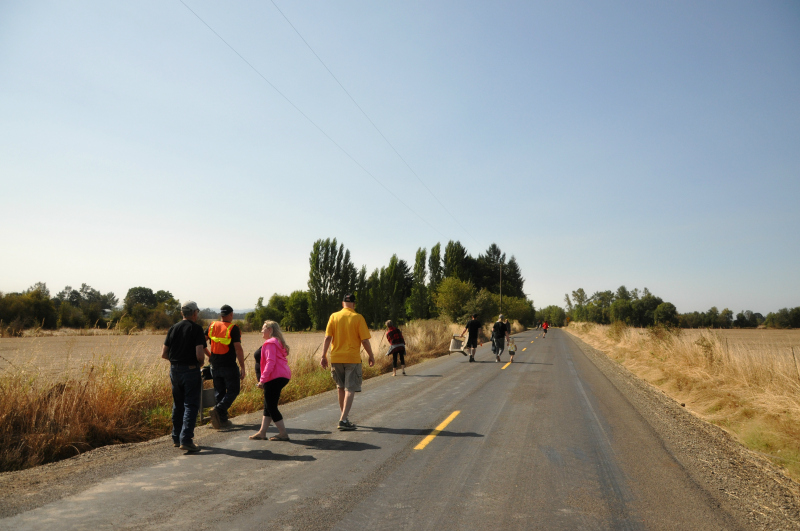
I love how you've captured such a neat experience in words. It really was magical, although our experience was a little more hectic than yours, lol. We live in the path of totality, but the weather made things a little difficult. We finally decided that morning to jump in the car and head 2 hours east for a better viewing. We pulled onto the shoulder of a country road just in time, but we did get to see it. I would have loved to have seen it from our home so I could see those shadows the trees make, but I'm just glad we got to see it at all. :)
ReplyDelete